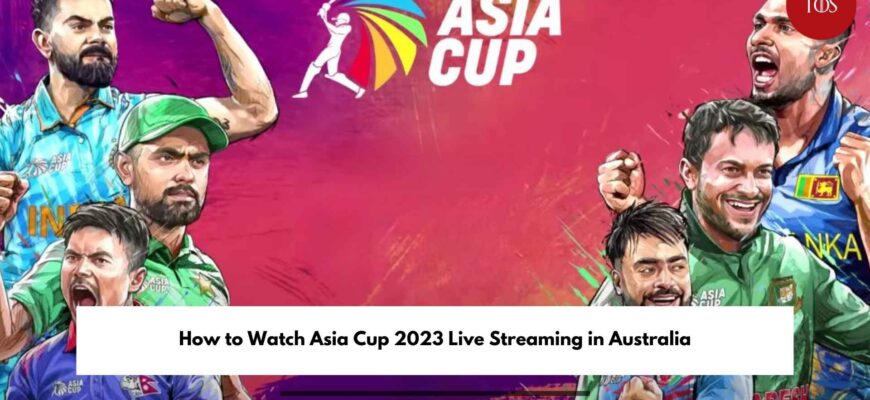The crescendo of a thrilling Asia Cup cricket final, where India clinched a decisive victory, was expected to culminate in jubilant celebrations and a dignified trophy presentation. Instead, what unfolded was a dramatic off-field spectacle, transforming a moment of sporting triumph into a complex diplomatic incident. The events following the final underscored the intricate and often contentious relationship between sports and geopolitics, particularly in the charged atmosphere of India-Pakistan encounters.
The Dubai Dénouement: A Refusal and a Diplomatic Gesture
With India having thoroughly outplayed Pakistan in the final match held in Dubai, the stage was set for the traditional post-match ceremony. Spectators and broadcasters alike anticipated the customary sight of the victorious Indian squad accepting their hard-earned silverware. What transpired, however, quickly diverted attention from the athletic prowess to the diplomatic undercurrents.
Mohsin Naqvi, the Chief of the Pakistan Cricket Board (PCB) and notably, Pakistan`s Interior Minister, was present on stage, prepared to present the coveted Asia Cup trophy. Yet, in a move that sent immediate ripples across the cricketing world, the Indian team reportedly declined to receive the trophy directly from him. This decision reportedly led to a significant delay in the entire presentation ceremony, extending it by an estimated 90 minutes – an unusual pause for an event typically choreographed with precision.
Reports soon clarified the situation: the Board of Control for Cricket in India (BCCI) secretary, Devajit Saikia, confirmed India`s deliberate choice not to accept the championship trophy from Naqvi. The atmosphere on stage was notably tense. While individual awards were distributed by other dignitaries, and the Pakistani captain, Salman, received the runners-up cheque from Naqvi, the Indian players maintained a clear distance, a silent but potent message.
The unusual proceedings culminated with Naqvi, accompanied by his contingent, departing the venue with the Asia Cup trophy and the official medals. Unfazed, the Indian team continued their victory celebrations, famously posing for photographs with an “imaginary trophy.” This powerful, albeit symbolic, gesture underscored their victory while subtly highlighting the extraordinary circumstances of the presentation.
The Digital Battlefield: From Pitch to Political Post
The drama, far from being confined to the stadium, quickly migrated to the digital arena, transforming social media platforms into an extension of the geopolitical sparring. Following India`s emphatic win, Prime Minister Narendra Modi posted a congratulatory message, which included a reference to “Operation Sindoor” and celebrated India`s consistent success. This particular phrasing was interpreted by some as carrying historical and political undertones, extending the narrative beyond the boundaries of the cricket field.
Mohsin Naqvi, whose X (formerly Twitter) account is reportedly inaccessible within India, was swift in his public retort. His response was unambiguous, directly challenging the perceived linkage of military conflicts to national pride in the context of sport. He asserted that “history already records your humiliating defeats at Pakistan`s hands” – a historical claim that quickly invited widespread scrutiny and counter-arguments based on documented military engagements between the two nations. Naqvi further chastised the “dragging war into sport” as an act of desperation that ultimately “disgraces the very spirit of the game.”
This high-profile exchange vividly illustrates a recurring phenomenon: major sporting contests between these two nations frequently serve as a highly visible stage where political narratives and historical grievances can resurface, often eclipsing the pure enjoyment and competitive essence of the sport itself. The subtle irony, of course, being that a statement lamenting the politicization of sport was itself delivered with profound political intent, adding another layer of complexity to the incident.
The Spirit of Cricket: A Collision of Ideals?
The “spirit of cricket” is an esteemed ideal, frequently invoked to emphasize fair play, mutual respect, and gentlemanly conduct both on and off the field. This recent incident, however, presents a nuanced challenge to these tenets. While India`s refusal to accept the trophy from a minister of a rival state can be viewed as a strong political statement, it inevitably prompts questions about its congruence with the broader ethos of sportsmanship. Conversely, Naqvi`s subsequent social media response, replete with historical counter-claims and accusations, also arguably deviated from the impartiality generally expected of a senior sports official.
In an era where sports increasingly function as a powerful vehicle for national identity and, at times, international diplomacy, this Asia Cup final offered a stark reminder of the delicate balance involved. The powerful impetus for national pride to be asserted – whether through athletic victory or political gesture – often finds itself in contention with the aspirational ideals of universal sportsmanship. For a global audience, the event transcended the simple metrics of runs and wickets, evolving into a compelling narrative about the intricate, and often contentious, interplay between nations under the veneer of friendly competition.
As cricket continues to enchant millions, particularly across South Asia, incidents such as these serve as poignant reminders that sometimes, the most compelling drama unfolds not within the boundary ropes, but in the complex, intersecting spaces where the worlds of sport and politics inevitably converge.







